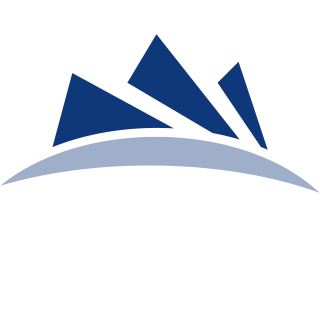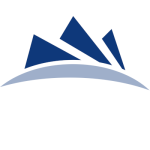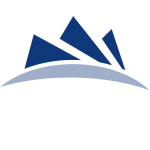You're listening to Tech Talks, a podcast by the Technology Education Collaborative.
Tech is an Arizona nonprofit that supports the secure, thoughtful use of technology
by empowering people with information about the technology they use each and every day.
Today, we're sitting down with Eric Miller, the co-owner of the Tempe-based pad tea,
which provides tools and services for physical product manufacturing and design. He's a regular
contributing columnist to the Phoenix Business Journal and an emeritus executive member and
former chair of the Arizona Tech Council. Eric, thank you so much for being here today.
Thank you for having me. So fun.
So the way this works is we sit down with the technologist and we ask everybody the
same five questions. So the first one's an easy one. What is your title position?
So I am co-owner and principal of Phoenix Analysis and Design Technologies,
and my role there is basically to be one of the three owners. We started the company 30
years ago together, who reports to me in the organization. So we split up the
responsibilities of running the company equally. I have human resources, information technology,
facilities, and then the internal consulting group. So the group that does engineering as
a service to other people. And I basically run all those different groups and successfully,
hopefully, have hired managers for each one to do most of the work for me.
So what does that look like on a daily basis? What's a day in the life like?
Day in the life is really because it's a leadership role. It really is being there
to help provide direction and support and to answer questions and make decisions.
Now that's most of what I do, but because I am who I am, I also do a lot of actual technical work.
So I do a lot of our marketing content. I do a lot, a little bit of engineering now and then.
I help with IT. So I do get my toes wet a little bit doing some work every once in a while to keep
my brain going. So it's kind of a mix of that meetings, which is a lot easier virtually to
do probably two or three of those a day. And the one thing I didn't realize when we started
the company is this role is really about listening. It's a huge amount about listening.
And then every once in a while, you've got to make a decision.
What is your least favorite thing about your jobs? Because we all have things we have to do
that do not light us up. I think the least favorite thing is I hate
conflict with a passion. Right. And hate is probably not the right word. I avoid it
almost like a phobia. Right. So that dealing with conflict, it's not fair to my employees
and our customers by not addressing it quickly. It can usually get worse. So I've really been
working hard on making sure that I kind of suck it up and deal with it. But that's the thing I
dislike the most. Any kind of conflict, whether it's, you know, what brand of toilet paper to buy
or if there's a fight over that, which there has been. Or an employee that's maybe not a good fit
or a customer that's unhappy. Right. What is your favorite thing about your job? And I might sneak
in a sub question here that we don't normally ask because your background is as a technologist.
I am a mechanical engineer. Yes. And I'm wondering if you've had to move away from that.
Yeah. So my favorite thing is the engineering. So the best part of our company and I'm not the
only one when we ask our employees, what's your favorite thing about the company? They almost all
say the same thing. It's the variety of problems we get to work on. So we help people who design
and build physical products, everything from say this microphone to rocket engines, to dog toys,
right? Everything in between medical devices, you know, semiconductor equipment, you name it.
It is so much fun to get exposure to all these different things, right? So customers will come in
with a new idea or it may be a big company. It may be an inventor, somebody in between,
and we get to help them figure out what their problem really is and then what a solution is.
And that could be we sell them hardware or we sell them software or my team can come in and
do consulting to help to solve the problem. And so just being able to work on those different
things, just sitting in the meetings and learn from these people who are experts in their field
and then help them solve their problems. That is by far and away the best part. And yeah,
so I'm a mechanical engineer, decided to do that in college, loved it, really, really liked it,
did it in a corporate role for nine years before we started the company 30 years ago.
And I still love it. I love technology. I'm kind of a weird mix on a tech side. And then yes,
I'm a mechanical engineer specializing in design, but I love writing software too. So kind of my
specialty before I got my lobotomy for management was to write software to make engineering more
efficient. So my area that I spent most of my career in and still do is what we call simulation,
which is building computer models of physical behavior. And so my kind of specialty was writing
software to make that software more efficient and more effective. And I still get to write a
little bit of code every once in a while. I sling some Python now and then. And I still know Fortran,
which most people don't even know what that is. So every once in a while, it's like,
does anybody know how? Oh yeah, Eric knows this. So I can dust off my Fortran book and
figure it out. So yeah, and to be honest, we joke about it, but there's a lot of Fortran
still in engineering. So what's your favorite project that you've ever done? My favorite
project was we weren't heavily involved in it, but just being peripherally involved was super,
super, super cool. There's a company down in Tucson called Syncardia and they make a total
artificial heart. So if you have heart failure and you can't get a transplant fast enough,
they completely remove your heart right before it dies. And they stick this thing inside and it
pumps like a normal heart. So it's a little bit different. There's assist devices that have like
more mechanical pumps, but this uses a membrane to pump like your, you know, the way your heart works
is it squeezes the blood, right? And so this kind of works like that. It kind of squeezes the blood.
So it's more natural flow. It flows through your body like heart flows. And we're doing very minor
stuff for them, helping with some materials, doing some testing, answering a few questions.
But we work on some life-saving stuff every once in a while, but this one, it's pretty groundbreaking
and significant. I mean, these are people that have lived on this artificial heart for four or
five years now waiting for the transplant. Yeah. And it's really, really cool to see. And one of
the projects we worked on was the, the original device was quite large. It was designed actually
by a dentist. So he had the right idea. He didn't know how to design medical equipment. And so one
of the projects that we helped them with is they shrunk it down to a backpack and we did some
testing on that backpack. And so to see people that will be able to leave the hospital and carry
this backpack with them or on rollers and go see their kids play or go outside and go for a walk
with their wife or something like that. I mean, that, that's like tear jerking, amazing stuff.
So, um, that, that, that's still over, over many, many years has been my favorite. I mean,
in some ways my favorite project's the last one we did. But, um, yeah, that, that definitely is up
there. The other thing that's getting me really excited is commercial space is really pun intended
taking off. We get to do again, small stuff in that space, but it's really cool to work with
people that are figuring out how to land on the moon. Right. So, so we were, we did a little bit
of work on a lunar lander for somebody. It's not the most exciting thing. We simulated the brackets
that hold the piping and we, we, so we work on the brackets. And so we'll, when that, when that
device lands in a couple of years, we'll be, we'll know that, that those brackets we looked at.
What is the one practical thing that you would want someone who's considering getting into kind
of your industry or field to do or to know? Like what is a practical measure they could
like step they could take or? Set aside time to learn new tools and skills. Engineering in one
way hasn't changed since, you know, they started building engines, right? That's what the name
comes from in that it's plan something, build it, figure out it's broken, fix it, make it better.
Right. But the tools we use to go through that process are much better and keep getting better
and better. One thing that can make your job enjoyable and make you more valuable to your
employers or to your customers if you're a solo is really knowing the latest tools and being a,
and knowing them really well, not just knowing them, but knowing them really well so you can
get stuff done quick and not focus on the tool. But if you get good enough at a tool, you don't
have to focus on the tool. You can focus on solving the problem. And that's actually one
of the core philosophies of our company as well is to know your tools inside and out. It doesn't
have the best tool. You don't have to have the newest tool. It's better if you do, but you don't
have to. If you know it really, really well, when somebody comes to you with a problem, it's like,
boom, I'm done. Right. And where other people may take a couple of weeks because they didn't
really know how to do it and I had to figure it out and I had to call support. So yeah, it's,
it's, it's definitely for any technical, not just mechanical engineering, but any technical thing
is learn those tools really, really well. And you become an expert. My next question is, do you have
any passion projects you're working on or are you involved in any community organizations you'd like
to mention or any kind of personal non-work or possibly overlapping? Cause I know that can be
the case interests that you want to share. The primary organization that I'm involved with is
the Arizona technology council. I just finished up as chairman of the board for four years and
now I'm emeritus, which I did have to look up what that meant. It's a great organization. So if
you're involved in technology or you're, or what you do supports technology, right? Well, a lot of
our members are on the creative side of things or the lawyer, lawyer inside or, you know, service
provider side, but it's, you know, it's, it's 700 companies that do tech in Arizona. I've made
friends there. I've gotten business there. I've, you know, learned a ton. So simple. Well, how do
you know so much about, I don't know, like digital marketing? Well, I went to two seminars that the
tech council put on and then I sat down with the expert that they had and explained everything to
me. That's how I learned it. Right. And so it's, it's a fantastic organization. The second one is
one that often gets confused with the tech council. It's the Arizona commerce authority.
So they do a lot of things. The group I'm involved with supports startups in our community.
So what they do is support companies, technology startup companies by a little bit of funding,
but mostly making introductions, providing resources, providing training. Right now,
I'm a subject matter expert, but I'm also an entrepreneur in residence there. So they pair us
up with these companies that maybe 20 going through the program at a time, sometimes more,
sometimes less. And then we just get together, a group of experts get together and kind of help
them get where they need to go. And they help each other as well. Huge fan of that program was just
fortunately reauthorized by the legislature. And they do a lot of other things as well,
like bringing other companies into the state, helping support the people that support startups.
It's a really great organization full of great people, both on the volunteer side and who work
there. Yeah. Those are the two big organizations. I think another one I'll put a plug in for,
if you're interested in green technology is something called the clean tech open.
And I'm a mentor for them as well. And they're an international startup competition mentoring
program. And I mentor for them and judge for them. And the idea there is to kind of help companies
that are focused on sustainability technology to kind of get over some of the humps that they have
to deal with, software, hardware, everything. Love that. Keep meeting great companies through
that organization. We support a lot of school robotics programs and do work with STEM as well.
That's probably where most of our charity work goes is in the STEM area. My passion
too. One, not so surprising, I love to cook. And so I do a lot of cooking. I bake and really enjoy
that. That's kind of my therapy. And then the other one is I've always wanted to be a writer
and I do write nonfiction. I do write for the business journal and I've written for our own
company and I ghost write as a freelancer for other companies, writing content for other
companies. And I do that just to kind of sharpen my skills. But what I really want to be is a
fiction writer, right? And it's really hard. The rest of it's really natural for me, but the
fiction part, it's really difficult. And I'm learning, right? So I'm just finishing up. I'm
going to get my certificate from the University of California, Berkeley extension program in a
couple months. And I will no longer have an excuse. I've been educated and I got to sit down
and write and write and write and figure this out because a lot of things come easy to me. This has
not come easy to me. I get to really force myself to do it. Well, those are all the questions we
have for you today. Thank you so much for coming in. We really appreciate it. Feel free to come
back anytime. Yeah, thanks for having me. It was really enjoyable. I love the lab.
A CSL.



